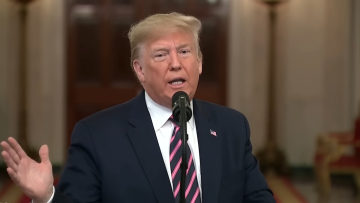Such decisions by Trump could have global implications for energy markets and the environmental situation.
According to Reuters, one of the first actions of the new president was to declare a state of emergency in the U.S. energy sector. Trump stated that this would grant him the authority to relax environmental regulations on energy infrastructure and expedite the construction of new pipelines and electrical grids. The challenges posed by the rising demand for energy, particularly due to the technological boom in artificial intelligence, were the primary reasons for these decisions.

Trump also resumed the process of issuing permits for liquefied natural gas exports, which will further bolster the U.S. position as a global leader in this sector. He mentioned that reviving these projects would ensure stable gas supplies to Asia and Europe, where there is currently high demand.
By withdrawing from the Paris Climate Agreement, Trump emphasized that the accord unfairly restricts the U.S., while countries like China continue to pollute the environment without facing any penalties. This decision sparked a wave of criticism from environmental organizations, but Trump views it as essential for maintaining national interests. Equally controversial was the decision to halt new wind power projects. Trump labeled offshore wind turbines as expensive and harmful to nature, which could delay the development of renewable energy in the U.S.

Regarding electric vehicles, Trump canceled Biden's initiative that aimed for half of all new cars to be electric by 2030. Additionally, he announced the cancellation of support for the development of charging station infrastructure and questioned the viability of incentives for electric vehicles. Trump also revived plans for drilling oil wells in the Arctic, which had been restricted by the Biden administration, and expressed intent to replenish the U.S. strategic oil reserve to maximum levels.
Source: reuters.